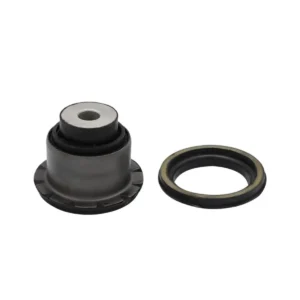You can contact us 24/7 +90 505 254 60 90
The best discounts this week
Every week you can find the best discounts here.
تعليق الكابينة، جلبة 9423100077
Kabin Takozu 9423100077
Cabin Suspension, Bushing 9423100077
Подвеска кабины, втулка 9423172112
Suspensão da cabine, buchas 9423172112
Suspensión cabina, buje 9423172112
In the fast-paced world of industrial manufacturing and repair, even a single moment of downtime can lead to significant productivity losses and financial setbacks. That’s why keeping essential spare parts in stock isn’t just a convenience—it’s a necessity. A well-prepared workshop can swiftly respond to unexpected equipment failures or maintenance needs without waiting days for shipments. In this article, we’ll walk you through the top five industrial spare parts every workshop should always have on hand and why they’re crucial to your operations.
1. Bearings
Bearings are the silent heroes of countless machines. They support rotational or linear movement while reducing friction between moving parts. Without them, motors seize up, conveyor belts stall, and pumps stop working. But not all bearings are created equal. Your workshop should stock a variety of types—ball bearings, roller bearings, and sleeve bearings—to match the needs of different machines. It’s also important to choose sealed bearings when working in dusty or wet environments to prevent contamination and premature failure. Buying from trusted suppliers ensures not only the right fit but also long-term durability.
2. Seals and Gaskets
Leaks can cause more than mess—they can lead to contamination, pressure loss, and permanent damage to machinery. Gaskets and seals are your first line of defense. Whether you’re dealing with oil, air, water, or gas, having the correct type and size of seal can make all the difference. It’s smart to keep a variety of materials—rubber, silicone, cork, and graphite—in stock to match different pressure and temperature conditions. Proper sealing doesn’t just protect equipment; it enhances efficiency and safety.
3. Filters
Filters protect the lifeblood of machines: fluids and air. Clean oil, fuel, and air are critical for the efficient performance and longevity of engines, compressors, and hydraulic systems. Contaminated fluids can clog lines, damage parts, and reduce efficiency. A clogged air filter can suffocate an engine or reduce airflow in a pneumatic system. Your workshop should keep a healthy inventory of oil, air, fuel, and hydraulic filters for all critical machinery. Regular replacement should be part of your preventive maintenance plan to avoid costly surprises down the line.
4. Belts and Chains
Power transmission components like belts and chains are essential for driving motion between gears, pulleys, and shafts. These parts are subject to high tension, friction, and constant use—which means wear and tear is inevitable. When one snaps or slips, entire systems can shut down. To minimize disruption, workshops should carry a variety of V-belts, timing belts, roller chains, and link belts in common sizes. Don’t forget tensioners and pulleys, which also wear over time. Keeping them in stock means you’re prepared for quick fixes and won’t lose hours—or days—waiting for deliveries.
5. Electrical Components
From relays and fuses to connectors and wiring harnesses, electrical components are the nervous system of any modern industrial setup. A blown fuse or faulty switch can halt a production line as surely as a broken motor. Having backups for these small but critical components is one of the most cost-effective ways to maintain uptime. Stocking standardized parts ensures you’re not hunting for unique replacements during a crisis. And don’t forget to include testing tools—like multimeters and continuity testers—to diagnose issues quickly.
Conclusion
Being proactive about stocking essential spare parts is like buying insurance against downtime. It’s not about hoarding—it’s about strategic readiness. Every hour saved in repairs is an hour earned in productivity. Whether you run a small workshop or manage a large industrial facility, having the right parts at the right time is what keeps your operations running smoothly.
Looking for a reliable source for high-quality industrial spare parts? At SupplyGate, we connect you with verified global suppliers and ensure quick access to the components you need. Stock smart, work smarter.
➡️ Explore our extensive inventory today and keep your operations seamless.
FAQ:
Q: How do I choose the right size for bearings and seals?
A: Refer to your machine’s manual or consult with your supplier to ensure compatibility.
Q: How often should filters be replaced?
A: Replacement frequency depends on usage and environment but typically ranges from every few months to annually.
Q: Can I order bulk quantities of belts and chains?
A: Yes, bulk orders are available for workshops managing multiple machines.
Post Widget
Recent Posts
- نصائح أساسية لمعدات الماكينات الأساسية للنجاح الصناعي
- Conseils essentiels sur l’équipement des machines pour réussir dans l’industrie
- Wichtige Tipps zur Maschinenausstattung für den industriellen Erfolg
- Endüstriyel Başarı için Temel Makine Ekipman İpuçları
- Suggerimenti essenziali sulle attrezzature per macchinari per il successo industriale








You must be logged in to post a comment.